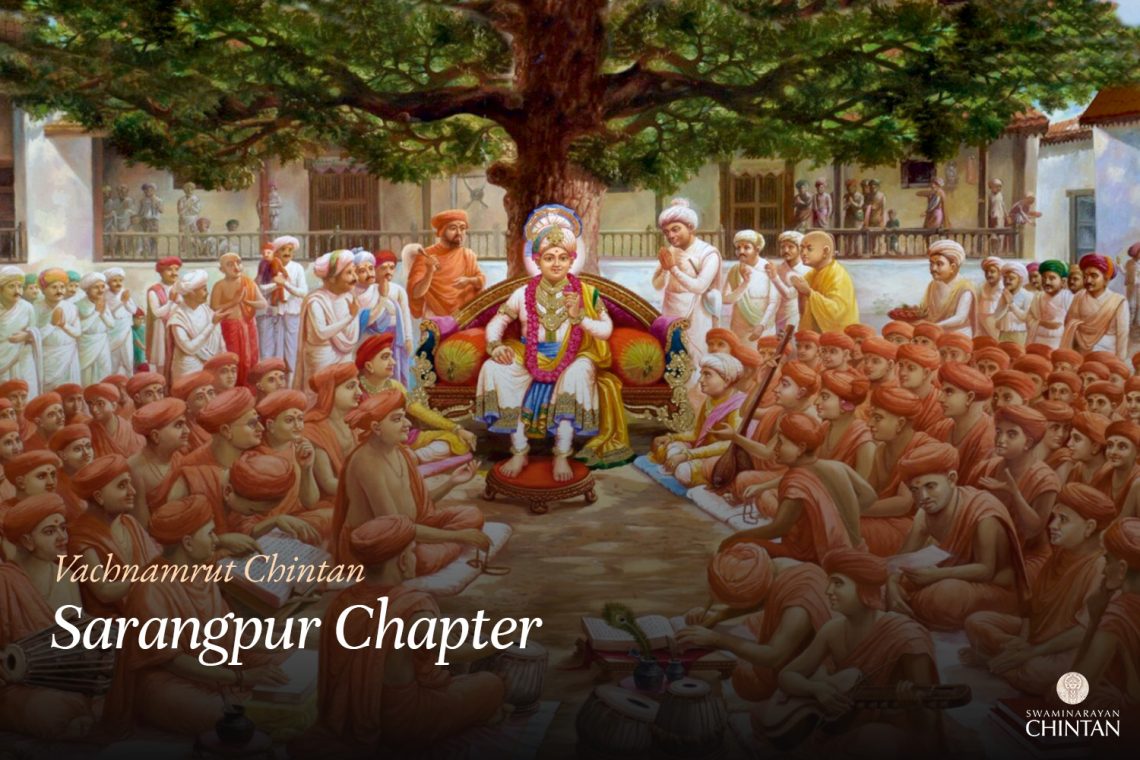Central Insights:
- The nature of jealousy.
Main Points:
- One who harbors jealousy in their heart cannot tolerate anyone’s progress.
- Ego gives rise to jealousy.
Commentary:
This Vachanamrut is about the nature of jealousy. Chaitanyanand Swami asked the question, “What is the nature of jealousy?” Shreeji Maharaj replied that ego in one’s heart gives rise to jealousy, and the characteristic of jealousy is such that when someone superior is honored, the jealous person cannot tolerate it. When someone exhibits such behavior, it can be understood that they have jealousy in their heart. Truly jealous individuals cannot tolerate anyone’s greatness.
The well-known example of jealousy from the scriptures is about Indra, the king of the deities. When King Dilip of the Suryavansh decided to perform one hundred yagnas, he completed ninety-nine yagnas. As he began the hundredth yagna, Indra came and stole the horse of yagna. A battle ensued between Raghu and Indra, and Indra was defeated. However, Indra said, “You may ask for anything except the yagna horse, but I will not allow this yagna to be completed.” Here, we need to look deeply into the emotions. The scriptures say that when someone performs one hundred yagnas, they attain the position of Indra. This does not mean that the current Indra is removed and replaced. There are many Brahmands (universes), and Bhagwan can provide the Indra position wherever there is space. The current Indra faces no difficulty in this.
Maharaj explains that ego gives rise to jealousy. The idea that someone might achieve the position of Indra like him is unacceptable to Indra. Although his own position as Indra is not at risk, nor is there a possibility of losing it in the future, he still cannot tolerate the thought of someone else reaching his level. He becomes active in creating obstacles to keep others down. Therefore, Maharaj says that anger, pride, and jealousy also arise from the same ego. The nature of jealousy is such that it cannot tolerate the progress of others. It causes the person who harbors it to act in ways to bring others down. Until they see some downfall in the other, they feel a burning sensation in their heart. If the other person fails, they feel happy. They believe that they must always remain the best and that no one should ever become their equal. Such hidden malicious intentions drive them to act in this manner. Therefore, Maharaj says that jealousy is born from ego.
Glossary
| Yagna – Sacrifice or offering Spiritual offerings made to Bhagwan, essential for prosperity, purification, and liberation. |
| Suryavansh – Solar Dynasty |
| Brahmand – Universe The vast material creation, encompassing all of existence in the material world, often used to describe the expansiveness of Bhagwan’s divine power. |

